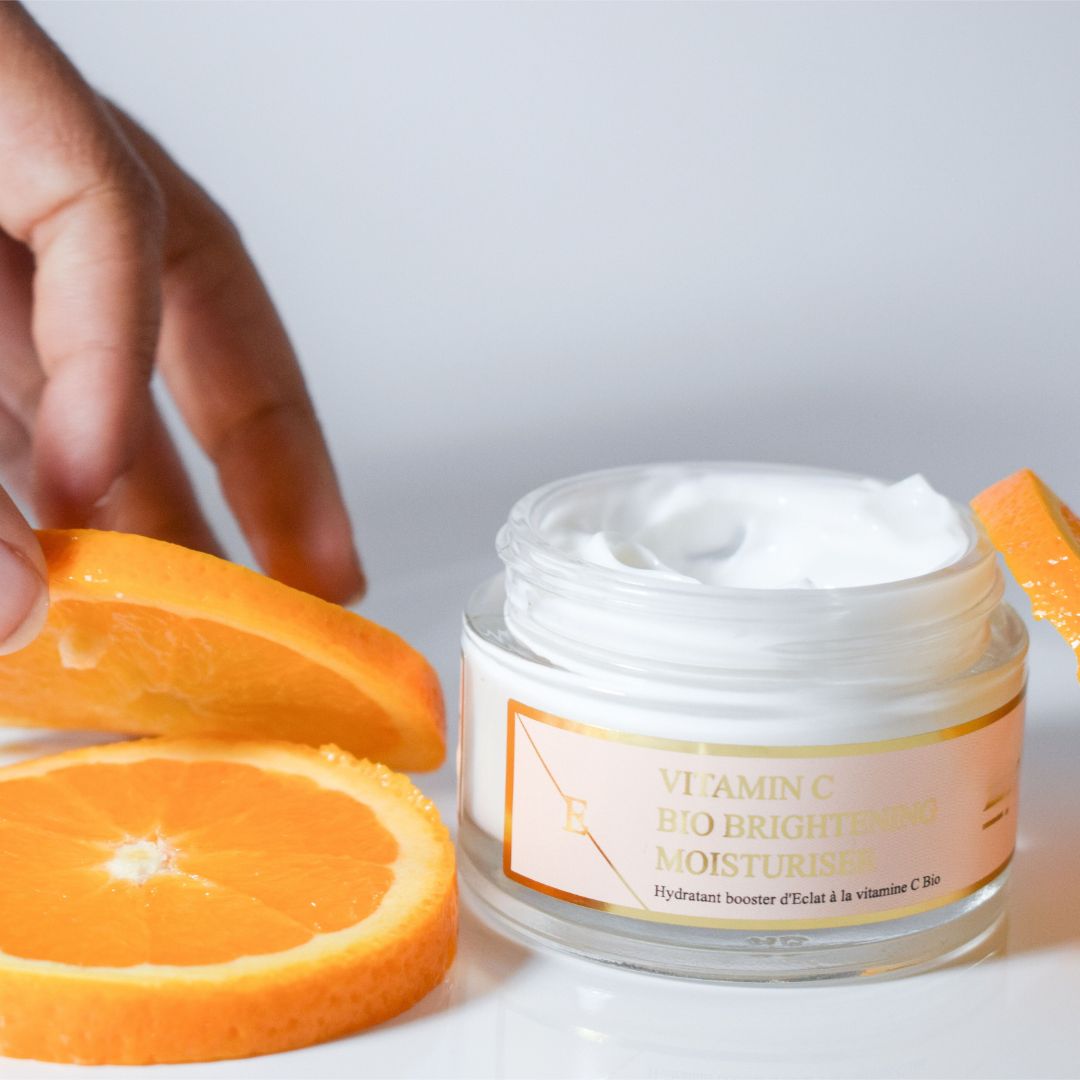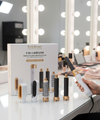Recent Post
Archive
- December 2025
- November 2025
- September 2025
- June 2025
Tags

Erthskin London The Power of Vitamin C for Pigmentation and Acne Scars
Maham Saqib
Sep 10, 2024
If you’ve been struggling with uneven skin tone, dark spots, or stubborn acne scars, you’re not alone. These skin concerns are incredibly common, but there’s a bright spot—literally—called Vitamin C. Known for its skin-brightening properties, Vitamin C has become a go-to ingredient for reducing pigmentation and acne scars. Let’s dive into why it’s so beneficial and how you can make the most of it.
What is Vitamin C?
Vitamin C, also known as ascorbic acid or L-ascorbic acid, is a powerful antioxidant found naturally in fruits and vegetables like oranges, berries, and spinach. When applied topically in skincare products, it has the ability to brighten skin, fade pigmentation, and improve the overall health of your complexion.
How Does Vitamin C Work on Pigmentation?
Pigmentation issues, such as dark spots, melasma, or hyperpigmentation, occur when the skin produces too much melanin in specific areas. This is often triggered by factors like sun exposure, hormonal changes, or inflammation (such as acne). Vitamin C tackles pigmentation by:
-
Inhibiting Melanin Production: Vitamin C interferes with the enzyme tyrosinase, which is responsible for the production of melanin. By doing so, it prevents dark spots from forming and helps lighten existing ones.
-
Boosting Collagen Production: Vitamin C stimulates collagen synthesis, which helps repair skin damage. This is especially helpful for acne scars, as collagen promotes skin regeneration and improves texture.
-
Neutralizing Free Radicals: Sun damage can worsen pigmentation. As an antioxidant, Vitamin C neutralizes free radicals caused by UV exposure, minimizing skin damage and preventing further darkening.
How Does Vitamin C Help Acne Scars?
Acne scars, particularly post-inflammatory hyperpigmentation (PIH), can leave marks that are difficult to fade. These scars appear as red, purple, or dark brown spots after a pimple heals. Vitamin C plays a crucial role in treating these scars by:
-
Reducing Redness and Inflammation: Vitamin C has anti-inflammatory properties that help reduce the redness of acne scars, making them less visible.
-
Speeding Up Skin Healing: By boosting collagen, Vitamin C speeds up the skin’s natural healing process, gradually reducing the appearance of scars.
-
Brightening the Skin: Vitamin C brightens dull areas and improves overall skin tone, helping scars blend more seamlessly with the rest of your complexion.
The Best Way to Use Vitamin C for Pigmentation and Scars
-
Serums: Vitamin C serums are the most effective way to deliver this ingredient to your skin. Look for formulas that contain L-ascorbic acid between 10% to 20% concentration for optimal results. Apply it after cleansing and before moisturizing.
-
SPF is Essential: Vitamin C works best when paired with a broad-spectrum sunscreen. Since sun exposure can worsen pigmentation, combining Vitamin C with sunscreen helps protect and enhance its brightening effects.
-
Consistency is Key: Like most skincare treatments, Vitamin C doesn’t work overnight. It may take a few weeks to see noticeable changes, but consistent use will reward you with brighter, clearer skin over time.
Final Thoughts
Whether you're looking to treat pigmentation, acne scars, or simply give your skin a radiant glow, Vitamin C is an incredible ingredient to include in your routine. Its brightening, anti-inflammatory, and skin-healing properties make it a skincare superstar. Just remember to pair it with SPF and use it consistently for the best results.
← Older Post Newer Post →




